One-day showcase training offers insights into the REBOUND accredited course on fostering resilience in rural communities.
The REBOUND project, supported by the EU through ERASMUS+ programme, developed and piloted an accredited (15 ECTS) training and capacity-building programme on rural community resilience. On the 8th of November 2023 a small group of around 15 experts, practitioners and researchers gathered from 9:00 to 15:00 for an ‘unaccredited’ one-day webinar on the topic of fostering rural resilience in rural communities. Participants discussed the topic eagerly and developed valuable feedback for the fine-tuning of the training course.
The one-day showcase of the training and capacity-building programme was delivered by Urszula Budzich-Tabor, Joanna Storie and Alistair Adam-Hernández on behalf of LDnet/AEIDL, with Breandán Ó Caoimh acting as a guest speaker. Participants were able to learn more about the key concepts and models of rural resilience as well as about Tools, policies and practices to foster rural resilience. Two in depth case study-presentations from Poland and Ireland enabled good reflections and discussions in small groups towards the end of the training. A good deal of interaction among participants was also made possible through mentimeter polls and an energizer quiz after the long mid-day break. Finally, the structure, content, and modules in the accredited training course [REBOUND] was presented and overall feedback collected.
What dimensions have influence on the resilience of a rural community?
During the introductory session about the key concepts and models of rural resilience participants were able to develop a deeper understanding of the fuzzy concept of rural resilience. At a wide conceptual level this can range from an understanding of resistance to change to an understanding of transformability in rural communities. The key message is that:
“Resilience is both the ability of a rural community to offer resistance as well as to change in the face of uncertainty and challenging conditions.”
The discussion about what affects – promotes or hinders – rural community resilience was especially interesting and rewarding for participants. After debating the different cultural aspects influencing the role of organised and unorganised civic society in European countries with different political trajectories (e.g.: with or without a socialist history, or Nordic Vs Mediterranean ways of life and attitudes), participants agreed on the relevance of interpersonal relationships as well as active agents in communities, taking the lead on important projects, that influence the quality of life for rural citizens.
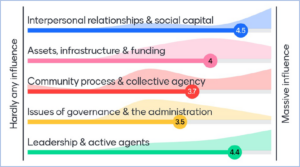
Figure 1 – Mentimeter results. Own source.
Getting into more detail and after examining a series of conceptual frameworks or models on (rural) community resilience, a series of relevant dimensions and factors to foster rural community resilience started to emerge in a co-creative approach between trainers and participants. A list of potential factors can be found in the image below.
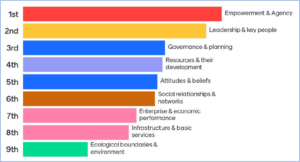
Figure 2 – Mentimeter results. Own source.
Fruitful discussions on how to interpret these aspects and sub-topics of resilience shifted the perspective of participants, for example towards a sustainability approach in which human interaction and economic development, must happen inside the ecological and planetary boundaries (see 9th factor in relation to the rest). Also, the fragility of communities relying on a small number of leaders and key people, to foster resilience by implementing participation and future-proof solutions, was subject of debate. Finally, there was a clear consensus among the participants that resilience itself and other related concepts (e.g.: collective agency, bridging social capital or self-efficacy) are quite demanding, even in an expert and practitioner environment. It is important to pay enough attention and allow the necessary time to exchange and reflect on these complex concepts, in order to achieve a common understanding.
Tools, policies and practices to foster rural community resilience
Fostering rural community resilience needs political will and resourceful communities, but how can this be achieved? Rural proofing policies needs to understand the dynamics of rural communities and the challenges they face at an appropriate scale, but most of all, they need to foster active participation.
During the session, participants were asked to rate the effectiveness of rural policies in their country or region, obtaining a predominantly critical evaluation. Strong impacts and unintended consequences can especially affect rural and peripheral communities. Long-term engagement of rural inhabitants needs to be reflective and listen to the rural voices, working with the communities to build the best strategies without overloading them.
It is important to build trust, which can often be sadly lacking in marginalised rural communities.
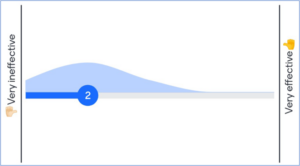
Figure 3 – Mentimeter results. Own source.
Why is it important to coordinate policies that have an impact on rural areas?
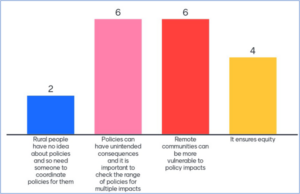
Figure 4 – Mentimeter results. Own source.
There are varied tools for building an active and engaged community and placemaking is one of those tools. Deciding together what makes a place vibrant and worth staying in is important. Understanding the identity of a place and creating a new dynamic identity can be as simple as creating a community space to eat together forging a sense of social cohesion. Everyone can be a placemaker and help to create a sense of home on which resilient communities can be built. Encouraging communities to take part, however, takes time and commitment.
This session finished by dividing into two groups to reflect and discuss what the participants felt contributed to resilient communities. Lively discussions were led by Alistair and Urszula in one group and Joanna and Brendan in the other. However, some of the first discussions centred on the terminology used. It is always important to understand that terminology is relevant to the communities. Too often communities can be left confused if they do not have the opportunity to understand the concepts being promoted.
Two examples on how rural communities are currently building resilience

Figure 5 – IRD Duhallow Skillnet Graduates 2022. Source: IRD Duhallow 2023.
IRD Duhallow is an Irish endogenous local action group including northwest Cork and southeast Kerry. It was established in the late 1980s, when a group of local business and civil society leaders came together. The organisation’s founders were motivated by a need to address challenges associated with rural decline, especially depopulation and youth out-migration. Since 1991, IRD Duhallow has implemented all iterations of LEADER, and it also promotes various social inclusion, community development, training and ecological initiatives among other endeavours.
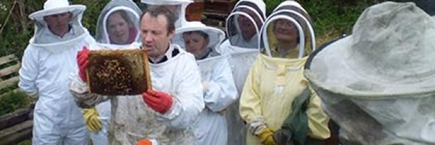
Figure 6 – Training in beekeeping. Source: Duhallow Beekeepers, IRD Duhallow (2023).
Among the significant features of its approach to promoting resilience are: consistent adherence to area-based development (informed by periodic area profiling and evaluations of territorial impact), ongoing capacity-building of stakeholders (including members of the board of directors and sub-committees), a thematic (rather than programme or funding-led) approach, whereby efforts and resources are integrated, endogenous membership and consistent advocacy on behalf of communities.
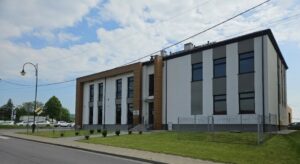
Figure 7 – The business centre. Source: LAG Stowarzyszenie Rozwoju Wsi Świętokrzyskiej.
In the rural municipality of Baćkowice in Poland, technological changes and collapse of markets have led to the disappearance of the textile industry and loss of employment for many local women. Led by a forward-looking and energetic mayor, the community was able to develop a response through the creation of a business incubator which attracted a textile company with a stable market niche. This company offered employment to 100 local people, mainly women. In addition, in this remote rural area with few public transport possibilities, a bus company was convinced to provide a connection which enables the women to get to work.
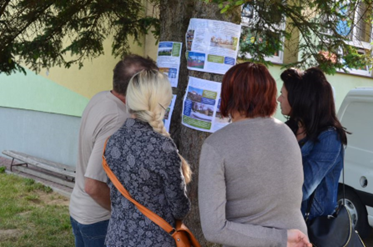
Figure 8 – Women get informed about cultural and sports events. Source: LAG Stowarzyszenie Rozwoju Wsi Świętokrzyskiej.
A series of other activities, partly supported by the neighbouring Local Action Group, helped to develop community action through grants to local NGOs, e.g. for cultural and sports events, and to maintain or improve the quality of services (such as education, health) and thus prevent depopulation of the area.
What to expect about the certified training course (15 ECTS)?
The Certificate in Rural Community Resilience is accredited by the Technological University of the Shannon (TUS). Accreditation is at Level 7 on the European Quality Framework. The course comprises two modules, and it is delivered online.
The first of these modules is worth ten credits (10 ECTS) and it covers a wide range of topics, including key concepts, relevant policies, place-making, participatory planning, good governance and project management. The module also incorporates several case studies from across rural Europe that enable students to review and critically evaluate various approaches to the promotion of community resilience. The module is delivered through weekly pre-recorded lectures and weekly interactive tutorials. Students are assessed on the basis of thematic reflections and their elaboration of a case study.
The second module is worth five credits (5 ECTS) and is delivered over three workshops. The Rebound team members also provide one-to-one and small group mentoring to students. The module is practice based, and its main objective is to enable students to take the lessons from Module 1 and apply them in their professional and / or voluntary work in rural communities. Students are assessed on the basis of a reflective journal.
General information on the REBOUND project
The inter-territorial project REBOUND is supported by the EU through ERASMUS+. It pursues an action-research approach to promoting rural community resilience. Since February 2022, REBOUND has examined the theoretical foundations of rural resilience, analysed 18 case studies, and developed and piloted a training and capacity-building programme on Rural Community Resilience.
The REBOUND partners are TUS Ireland (lead), University of Ljubljana (Slovenia), ADRIMAG (LAG – Portugal), Development Agency Kozjansko (LAG – Slovenia), O’Keeffe Social Research (Ireland) and AEIDL in association with LDnet (EU-wide).
More information about REBOUND at https://ruralresilience.eu/
Joanna Storie, Urszula Budzich-Tabor, Brendan Ó Caoimh & Alistair Adam Hernández
December 2023
Leave a Reply
You must be logged in to post a comment.